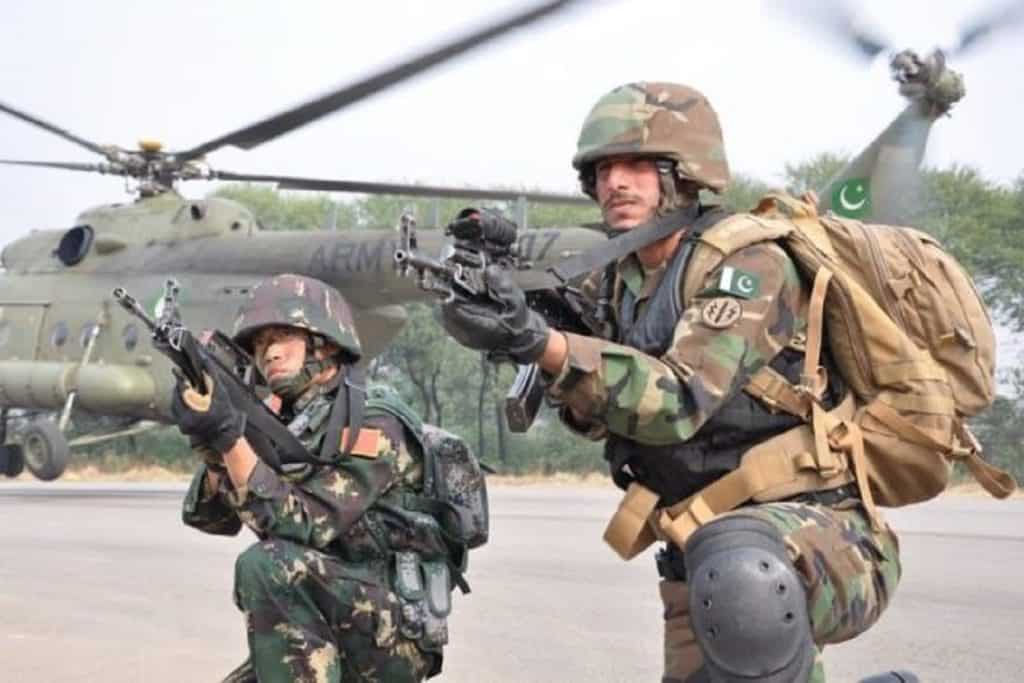The Indo-Pakistani conflict as a result of the New Delhi initiative to abolish the special status of the state of Kashmir risks escalating into a full-scale war. According to experts, hostilities may resume in the very near future. Of particular concern is that various terrorist groups, including the Islamic State, may take advantage of the critical situation in Kashmir. The risk of another wave of terrorist attacks is extremely high, which poses a real threat to the entire world community.

Especially for World Geostrategic Insights, we talked about this with Yasir Masood, deputy director of media and publications at the CPEC Centre of Excellence for China-Pakistan Economic Corridor (Islamabad, Pakistan).
1.On August 7, 2019, the upper house of the Indian parliament voted to repeal Section 370 of the Constitution, which gives Jammu and Kashmir special status. This decision was approved by the Prime Minister of India, Narendra Modi, according to which the arrangement of the disputed territory should be reorganized. Meanwhile, such a legislative initiative was the basis for the escalation of the conflict between Pakistan and India. So, in response to the cancellation of the special status of the region of Islamabad in the person of the country’s Prime Minister Imran Khan, he said that the Pakistani army “will do everything” to help Kashmir. In turn, New Delhi sent an additional 25,000 troops to the region. Does this mean that a war could begin between Pakistan and India in the near future? Are diplomatic methods for resolving a territorial dispute over the status of Kashmir exhausted today?
– Before answering your question, let’s first take a closer look at the context of Article 370 of the Constitution of India, which allowed Kashmir to receive special status as a result of the process of joining India in 1947. The accession was based on the solemn guarantee of the Indian government that the state of Jammu and Kashmir will enjoy full autonomy, and that the central leadership of India will only care about defense, foreign affairs and communications.
Thus, India raised a “political storm” that turned out to be virtually uncontrollable, making peace between India and Pakistan impossible.
Such actions are like “walking on the shell”, when even one wrong movement can destroy the whole basis of the regional order. Fear of a military conflict between the two nuclear powers can lead to chronic hostility due to the socio-economic liberalization of millions of impoverished citizens in both countries. But most importantly, Kashmiris will suffer to the maximum extent when India makes an attempt to forcibly destroy the civil rights of local residents.
India and Pakistan, since 1947, have been at enmity, and there have already been two full-scale wars between the countries, with the exception of sporadic cross-border shelling. The escalation between India and Pakistan is extremely high, given India’s move to repeal Section 370 of the Constitution. However, the last hope to level the conflict in Kashmir rests on the decision of the Supreme Court of India, which may recognize the actions of the Indian government as unconstitutional. This can greatly ease tensions. Otherwise, the region should beware of the coming dark times, which are likely to go beyond the war between India and Pakistan.
The diplomatic opportunities for resolving the Kashmir dispute have always been open at the initiative of Islamabad, but since the advent of the Narendra Modi government in 2014, India has closed all the doors of diplomatic means. Islamabad has repeatedly called on New Delhi to take steps to resolve the issue of disputed territories, but all of Islamabad’s efforts have been rejected. In addition, despite the proposal by US President Donald Trump to act as an intermediary between India and Pakistan, the government of Narendra Modi ignored the American initiative.
In diplomatic terms, Islamabad is ready to resolve this territorial dispute if India sits at the negotiating table and prevents unrest in the region. Among other things, Pakistan will dispute the repeal of Articles 370 of the Indian Constitution at the International Court of Justice and the UN Security Council.
Islamabad’s diplomatic maneuvers are loud and clear. For example, China is categorically against India abolishing Kashmir’s special status. Beijing’s strategic and comprehensive approach, in this case, can make a difference in order to reverse the process of escalation of the conflict.
Russia, as a member of the UN Security Council, can play an important role in normalizing the situation between the two countries by taking tricky steps to convince New Delhi to reverse its decision.
Against the background of the support provided to Pakistan by Iran, China, and China, the international recognition by the United Arab Emirates only of the abolition of the special status of Kashmir creates little effect for India, which suggests that the initiative of the Narendra Modi government will be blocked sooner or later by the international community.
The visit of the Minister of Foreign Affairs of Pakistan to China immediately after the current tensions between New Delhi and Islamabad on August 9, 2019 clearly indicates the key role that China can play internationally to condemn India’s move against Kashmir and the entire region. At the meeting, Chinese Foreign Minister Wang Yi noted that the dispute over the status of Kashmir should be properly resolved “based on the UN Charter, relevant UN Security Council resolutions and a bilateral agreement.”
2. Not limited to statements of readiness to use military force, on August 7, 2019, Pakistan sent an Indian envoy to Islamabad and announced a five-point plan, which includes reducing its ties with New Delhi and halting bilateral trade. Can it be argued that the Indian government is implementing the conditions of the Pakistan plan? Is a boycott of economic ties between Pakistan and India an effective measure of impact? Boycotting bilateral trade with New Delhi, Islamabad seems to be activating economic ties with other countries, and above all, with China and Russia. Is it so? What decisions in terms of economic cooperation should Moscow and Beijing expect from Islamabad?
Regardless of whether India fulfills the terms of the Pakistani plan, it doesn’t matter at the moment, since the Pakistani armed forces are on high alert and intend to withstand any aggression if it comes from India or another state. For example, attacks on Pakistan are likely from Afghan territory, on the border with which we also expect active hostilities.
The five-point agenda for Pakistan is primarily intended to demonstrate Islamabad’s concerns in New Delhi. A boycott of economic ties and lowering diplomatic relations are the first line of defensive measures that Islamabad is taking, as emotions in Pakistan have reached a critical point when every citizen is ready to fight for the people of Kashmir to the last drop of blood.
We expect both Beijing and Moscow to support us in the search for peace and security, which are essential not only to Pakistan, but to the entire region. An economically viable Pakistan, with the help of Beijing and Moscow, would dispel the intentions of hardliners.
China supports Pakistan economically through the Sino-Pakistan economic corridor, which operates smoothly. Recently, Beijing allowed Pakistani products to enter its market, which will increase Islamabad’s exports to China. Special economic zones will begin soon in Pakistan.







